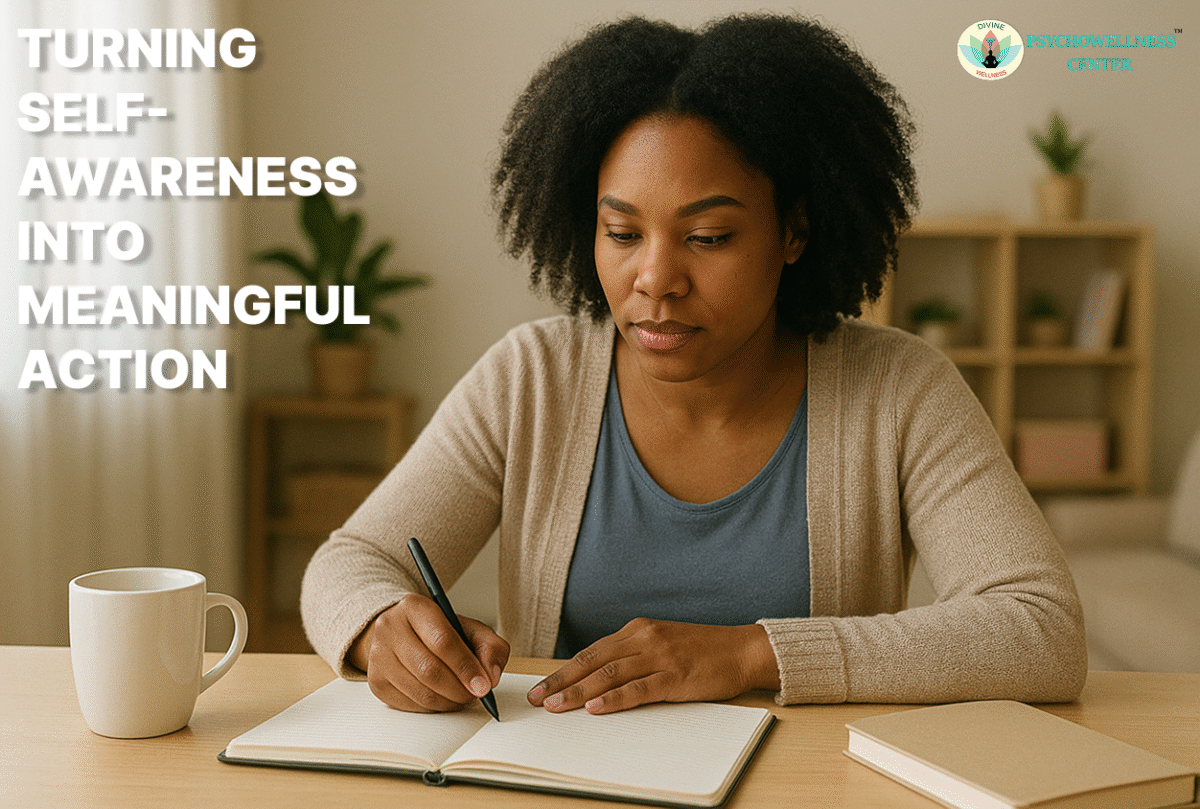We all have had moments of clarity, the kind where we recognise a toxic habit, feel the emotional weight of an unresolved issue, or notice how our actions affect others. These flashes of self-awareness can feel powerful, even life-changing. But what happens after that insight fades? Do we act, or do we return to old patterns?
Understanding yourself is just the first step. Turning self-awareness into meaningful action is what truly leads to personal growth, emotional resilience, and improved mental well-being. And that transition, from knowing to doing, is where psychology offers us valuable tools.
What Is Self-Awareness?
At its core, self-awareness is the ability to observe and understand your thoughts, emotions, and behaviours. It’s a key component of emotional intelligence and plays a major role in everything from personal relationships to professional success.
Psychologist Daniel Goleman, a pioneer in emotional intelligence, describes self-awareness as the foundation for all emotional competencies. Without it, we can’t regulate our emotions, empathise with others, or make sound decisions.
Self-awareness can be:
- Internal – Understanding your values, motivations, and triggers
- External – Understanding how others perceive you
But awareness alone doesn’t guarantee change. You might know you procrastinate when anxious, but unless you apply that insight with behavioural strategies, the cycle repeats.
Why People Get Stuck After Gaining Insight
Even when people become aware of unhelpful behaviours or emotional patterns, they often struggle to act. This happens for several reasons:
- Fear of Discomfort – Taking action means stepping outside your comfort zone.
- Cognitive Dissonance – Change challenges your current identity and beliefs.
- Low Self-Efficacy – You may doubt your ability to follow through.
- Unresolved Trauma or Anxiety – Emotional wounds can block action even when intentions are clear.
That’s where psychology-based approaches like cognitive behavioural therapy (CBT) and mindfulness practices come in, they offer tools to translate awareness into sustainable change.
From Insight to Action: Six Steps Grounded in Psychology
1. Identify Patterns with Precision
Journaling, therapy, or even guided introspection can help you go beyond vague realisations. Instead of saying, “I’m anxious,” you might observe, “I feel anxious when I don’t get immediate feedback at work because I tie my value to performance.”
This level of specificity allows for targeted behavioural change.
2. Set Intentional Goals
Based on your observations, create objectives using the SMART method: Specific, Measurable, Achievable, Relevant, and Time-bound. If you’ve realised you avoid conflict, a goal might be: “Have one honest conversation with my colleague about workload expectations this week.”
Behavioural psychology emphasises that small, achievable goals are more likely to create long-term change.
3. Develop an Action Plan
Planning bridges the gap between knowing and doing. Create a step-by-step roadmap. If you tend to isolate when stressed, your action plan could be:
- Recognise the early signs of emotional withdrawal
- Text one friend for a short chat
- Schedule weekly social check-ins
This structured approach is used in CBT to help people replace maladaptive behaviours with healthy ones.
4. Practice Emotional Regulation
You may feel resistance, fear, or vulnerability when taking action. Learning to regulate emotions through deep breathing, mindfulness, or grounding techniques helps you stay steady when discomfort arises.
Therapists often teach emotion-focused coping to manage difficult feelings that block progress.
5. Seek Feedback and Adjust
External self-awareness grows when we listen to trusted others. Feedback from a therapist, coach, or mentor can help refine your efforts and keep you aligned with your goals.
This step is common in interpersonal therapy, where understanding relational dynamics becomes a tool for self-growth.
6. Celebrate Progress, Not Perfection
Progress may be slow, but every small win matters. Shifting your inner narrative from “I need to fix myself” to “I am learning and evolving” reinforces positive change and reduces the shame that can sabotage your efforts.
This mindset is encouraged in positive psychology, which focuses on strengths rather than deficiencies.
When to Seek Professional Help
If you find that self-awareness only leads to guilt, overthinking, or emotional paralysis, you might be facing deeper blocks such as:
- Anxiety or depression
- Childhood trauma
- Low self-worth
- Attachment wounds in relationships
In these cases, professional support can help you go beyond insight into transformation. Whether you choose online counselling or in-person therapy, guided support ensures you’re not navigating change alone.
Conclusion: Support That Turns Awareness into Growth
Knowing yourself is powerful, but it’s just the beginning. True growth happens when you take intentional steps informed by that knowledge. It involves courage, consistency, and sometimes, the guidance of someone who can help you translate inner work into outer change.
If you’re ready to take action but don’t know where to start, help is available. TalktoAngel offers online counselling with trained psychologists who can support your emotional growth, self-awareness, and behavioural change, all from the comfort of your home. Prefer face-to-face support? The experienced therapists at Psychowellness Center in Janakpuri and Dwarka Sector-17, Delhi, offer compassionate offline counselling to help you turn your insights into action and your potential into progress.
Awareness is the first step, but action is what truly transforms your life.
Written with insights from Dr. R.K. Suri, Clinical Psychologist, and Ms. Mansi, Counselling Psychologist.
This blog was posted on 19 August 2025
References
Goleman, D. (1995). Emotional intelligence: Why it can matter more than IQ. Bantam Books.
Beck, J. S. (2011). Cognitive behaviour therapy: Basics and beyond (2nd ed.). Guilford Press.
Neff, K. D. (2011). Self-compassion: The proven power of being kind to yourself. William Morrow.
Self-Awareness and Relationship – Psychowellness Center
What is Self-Knowledge in Psychology? – Psychowellness Center

